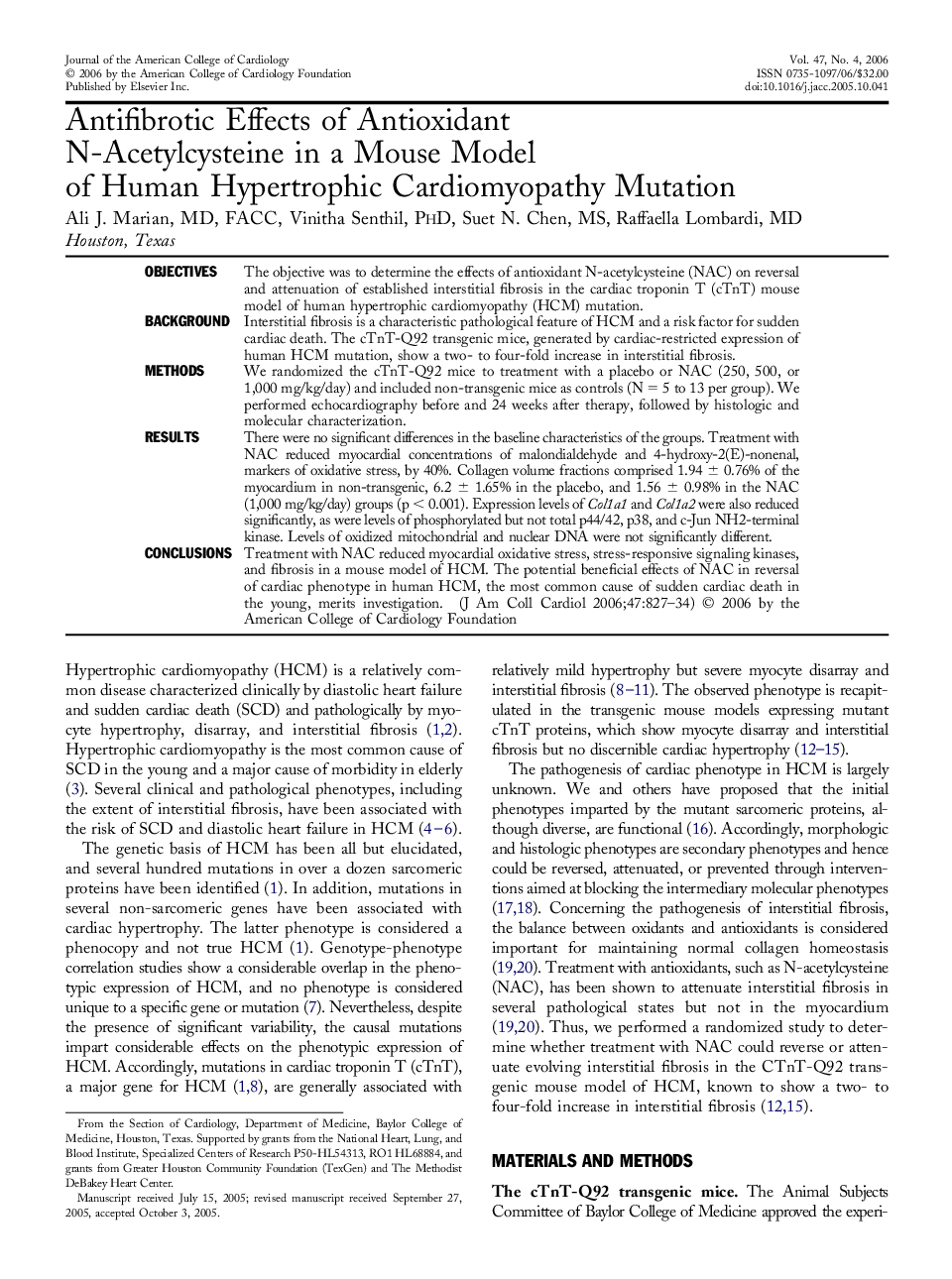| Article ID | Journal | Published Year | Pages | File Type |
|---|---|---|---|---|
| 2952436 | Journal of the American College of Cardiology | 2006 | 8 Pages |
ObjectivesThe objective was to determine the effects of antioxidant N-acetylcysteine (NAC) on reversal and attenuation of established interstitial fibrosis in the cardiac troponin T (cTnT) mouse model of human hypertrophic cardiomyopathy (HCM) mutation.BackgroundInterstitial fibrosis is a characteristic pathological feature of HCM and a risk factor for sudden cardiac death. The cTnT-Q92 transgenic mice, generated by cardiac-restricted expression of human HCM mutation, show a two- to four-fold increase in interstitial fibrosis.MethodsWe randomized the cTnT-Q92 mice to treatment with a placebo or NAC (250, 500, or 1,000 mg/kg/day) and included non-transgenic mice as controls (N = 5 to 13 per group). We performed echocardiography before and 24 weeks after therapy, followed by histologic and molecular characterization.ResultsThere were no significant differences in the baseline characteristics of the groups. Treatment with NAC reduced myocardial concentrations of malondialdehyde and 4-hydroxy-2(E)-nonenal, markers of oxidative stress, by 40%. Collagen volume fractions comprised 1.94 ± 0.76% of the myocardium in non-transgenic, 6.2 ± 1.65% in the placebo, and 1.56 ± 0.98% in the NAC (1,000 mg/kg/day) groups (p < 0.001). Expression levels of Col1a1and Col1a2were also reduced significantly, as were levels of phosphorylated but not total p44/42, p38, and c-Jun NH2-terminal kinase. Levels of oxidized mitochondrial and nuclear DNA were not significantly different.ConclusionsTreatment with NAC reduced myocardial oxidative stress, stress-responsive signaling kinases, and fibrosis in a mouse model of HCM. The potential beneficial effects of NAC in reversal of cardiac phenotype in human HCM, the most common cause of sudden cardiac death in the young, merits investigation.
